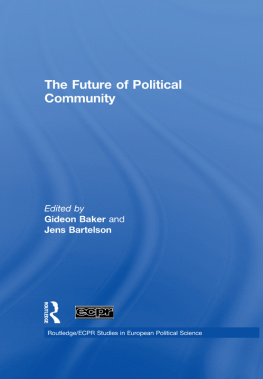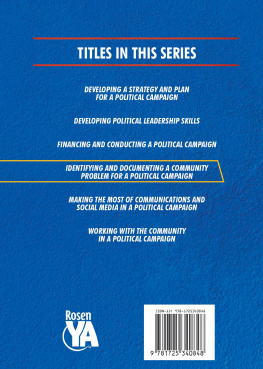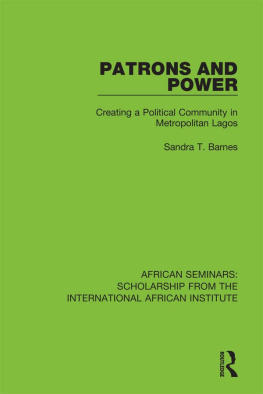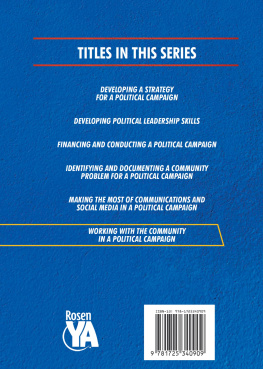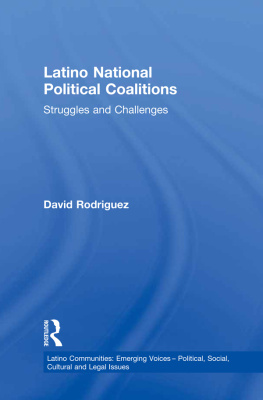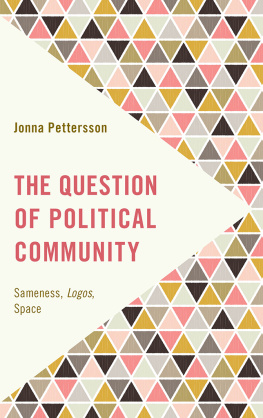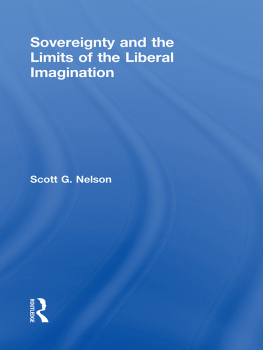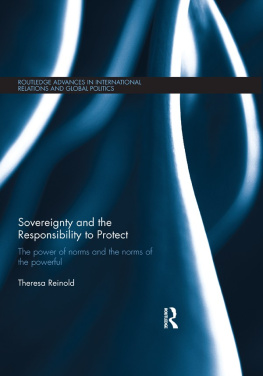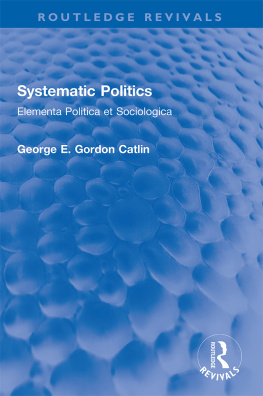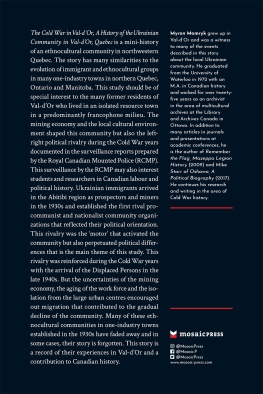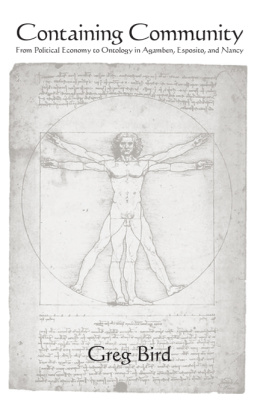The Future of Political Community
How should we think about the future of political community? Do we have good reason to continue to connect political community to ideas of progress and democracy? What is the likelihood of communal belonging taking post-national and even self-critical forms? Is post-territorial, border-less politics the future of political community or more to do with growing disconnection between elites and masses, whereby power becomes increasingly free from accountability? Could it even be that the boundaries of political community are necessary to ethics in world politics? How should we understand the transformation of political community as an empirical event at the global level? And what can we glean about the future of political community from the past?
Bringing major new insights to a burgeoning field of interest within international relations, the volume:
encourages the reader to re-evaluate the concept of political community
questions the key assumptions behind current accounts of political community's transformation
includes contributions from internationally-renowned scholars
This volume will be of major interest to students and scholars of International Relations, International Political Theory, and Social and Political Science.
Gideon Baker is Senior Lecturer in Politics at Griffith University, Queensland, Australia.
Jens Bartelson is Professor of Political Science at the Department of Political Science, Lund University.
Routledge/ECPR Studies in European Political Science
Edited by Thomas Poguntke
Ruhr University Bochum, Germany on behalf of the European
Consortium for Political Research
The Routledge/ECPR Studies in European Political Science series is published in association with the European Consortium for Political Research - the leading organisation concerned with the growth and development of political science in Europe. The series presents high-quality edited volumes on topics at the leading edge of current interest in political science and related fields, with contributions from European scholars and others who have presented work at ECPR workshops or research groups.
Regionalist Parties in Western Europe
Edited by Lieven de Winter and Huri Trsan
Comparing Party System Change
Edited by Jan-Erik Lane & Paul Pennings
Political Theory and European Union
Edited by Albert Weale and Michael Nentwich
Politics of Sexuality
Edited by Terrell Carver and Vronique Mottier
Autonomous Policy Making by International Organizations
Edited by Bob Reinalda and Bertjan Verbeek
Social Capital and European Democracy
Edited by Jan van Deth, Marco Maraffi, Ken Newton and Paul Whiteley
Party Elites in Divided Societies
Edited by Kurt Richard Luther and Kris Deschouwer
Citizenship and Welfare State Reform in Europe
Edited by Jet Bussemaker
Democratic Governance and New Technology
Technologically mediated innovations in political practice in Western Europe
Edited by Ivan Horrocks, Jens Hoff and Pieter Tops
Democracy without Borders
Transnationalisation and conditionality in new democracies
Edited by Jean Grugel
Cultural Theory as Political Science
Edited by Michael Thompson, Gunnar Grendstad and Per Selle
The Transformation of Governance in the European Union
Edited by Beate Kohler-Koch and Rainer Eising
Parliamentary Party Groups in European Democracies
Political parties behind closed doors
Edited by Knut Heidar and Ruud Koole
Survival of the European Welfare State
Edited by Stein Kuhnle
Private Organisations in Global Politics
Edited by Karsten Ronit and Volker Schneider
Federalism and Political Performance
Edited by Ute Wachendorfer-Schmidt
Democratic Innovation
Deliberation, representation and association
Edited by Michael Saward
Public Opinion and the International Use of Force
Edited by Philip Everts and Pierangelo Isernia
Religion and Mass Electoral Behaviour in Europe
Edited by David Broughton and Hans-Martien ten Napel
Estimating the Policy Position of Political Actors
Edited by Michael Laver
Democracy and Political Change in the Third World
Edited by Jeff Haynes
Politicians, Bureaucrats and Administrative Reform
Edited by B Guy Peters and Jon Pierre
Social Capital and Participation in Everyday Life
Edited by Paul Dekker and Eric M Uslaner
Development and Democracy
What do we know and how?
Edited by Ole Elgstrm and Goran Hyden
Do Political Campaigns Matter?
Campaign effects in elections and referendums
Edited by David M. Farrell and Rdiger Schmitt-Beck
Political Journalism
New challenges, new practices
Edited by Raymond Kuhn and Erik Neveu
Economic Voting
Edited by Han Dorussen and Michaell Taylor
Organized Crime and the Challenge to Democracy
Edited by Felia Allum and Renate Siebert
Understanding the European Union's External Relations
Edited by Michle Knodt and Sebastiaan Princen
Social Democratic Party Policies in Contemporary Europe
Edited by Giuliano Bonoli and Martin Powell
Decision Making Within International Organisations
Edited by Bob Reinalda and Bertjan Verbeek
Comparative Biomedical Policy
Governing assisted reproductive technologies
Edited by Ivar Bleiklie, Malcolm L. Goggin and Christine Rothmayr
Electronic Democracy
Mobilisation, organisation and participation via new ICTs
Edited by Rachel K. Gibson, Andrea Rmmele and Stephen J. Ward
Liberal Democracy and Environmentalism
The end of environmentalism?
Edited by Marcel Wissenburg and Yoram Levy
Political Theory and the European Constitution
Edited by Lynn Dobson and Andreas Follesdal
Politics and the European Commission
Actors, interdependence, legitimacy
Edited by Andy Smith
Metropolitan Governance
Capacity, democracy and the dynamics of place
Edited by Hubert Heinelt and Daniel Kbler
Democracy and the Role of Associations
Political, organizational and social contexts
Edited by Sigrid Roteutscher
The Territorial Politics of Welfare
Edited by Nicola McEwen and Luis Moreno
Health Governance in Europe
Issues, challenges and theories
Edited by Monika Steffen
Republicanism in Theory and Practice
Edited by Iseult Honohan and Jeremy Jennings
Mass Media and Political Communication in New Democracies
Edited by Katrin Voltmer
Delegation in Contemporary Democracies
Edited by Dietmar Braun and Fabrizio Gilardi
Governance and Democracy
Comparing national, European and international experiences
Edited by Yannis Papadopoulos and Arthur Benz
The European Union's Roles in International Politics
Concepts and analysis

